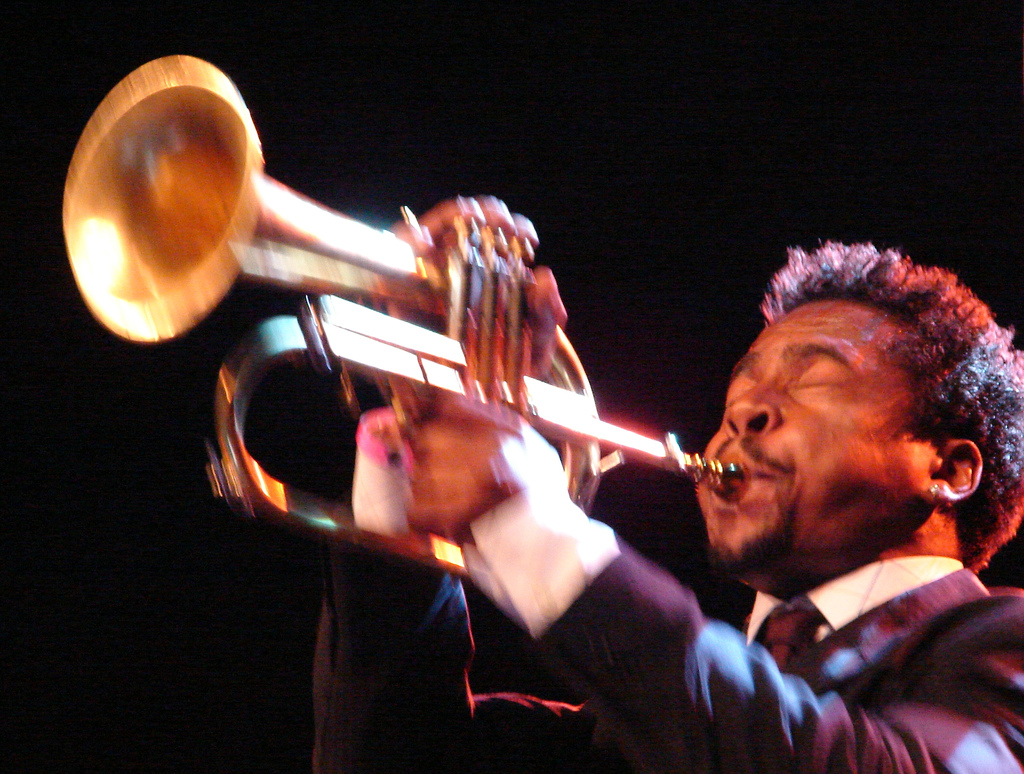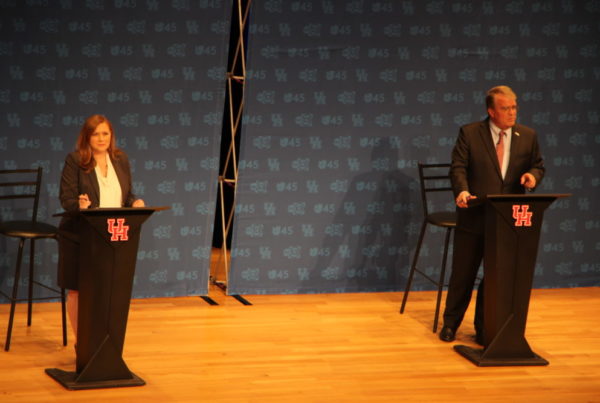From KERA:
Bart Marantz loves telling Roy Hargrove stories. For decades he was the jazz studies director at Booker T. Washington High School for the Performing and Visual Arts in Dallas. He retired three years ago but still remembers recruiting Hargrove right out of Zan Wesley Holmes Jr. Middle School, in Oak Cliff.
“And I heard this trumpet player from down the hall, and I found myself running to see who this was. And when I looked in, there was this thin, small little trumpet player with a huge smile on his face, no bigger than five feet – just a small little guy named Roy,” Marantz says.
Hargrove began at Booker T. the next year. He helped the still-new arts high school develop its stellar reputation. When jazz giant Wynton Marsalis was playing at a club in Fort Worth a few years later, he visited Booker T. to play with the jazz band.
“I pointed to Roy for the first solo. Wynton had started his solo, and he said, ‘OK, show me.’ And at that point, his mouth opened up, looking at Roy, going – and I read his lips – ‘My God.’ After the show, he embraced Roy, got him into the van and took him to the Caravan of Dreams, and rest is history,” Marantz says.
Anyika Mcmillan-Herod, who co-founded Soul Rep Theatre Company here in Dallas, remembers those teenage years at Booker T. She graduated in 1989, a year after Hargrove.
“He was cool. He was truly an artist. You know, a lot of times, I guess, in high school we still feel young. He seemed to be the old man on campus. You know, the one who’s walking in his gift, walking in his strength, walking in his power. And it was just evident then; it was sort of very impressive.” Mcmillan-Herod says.
Roy Anthony Hargrove was born in Waco on Oct. 16, 1969. His family soon moved to Dallas where he grew up, and where he also took up trumpet-playing.
After graduating from Booker T., he attended a few years of college, including the famous Berklee College of Music in Boston. Soon, he was playing with top names and recording, and never looked back. He was a leader and side player on dozens of recordings. Marantz says he kept evolving.
“He could play with a hip-hop group and then lay down a ballad or a straight-ahead standard better than anybody. He never sold out. He walked his walk. He made his statement based on the history of the music,” Marantz says.
Hargrove won two Grammies, the first with the Latin band Crisol. He also struggled with drugs. Four years ago, after a drug arrest, he admitted in court to using cocaine. His agent said Hargrove’s death stemmed from kidney disease, after years on dialysis.
















